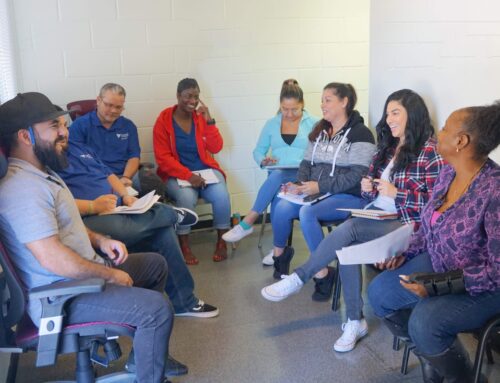Nonprofit volunteer opportunities are a great way to enrich your life. The American Psychological Association adds that volunteers live up to 47% longer than those who don’t. Take these statistics with a grain of salt, but it tracks that being the kind of person that gives back probably has positive effects.
If you’ve been considering volunteering for a nonprofit, you might be asking yourself what opportunities are out there and what you can expect. Let’s walk through what to expect when pursuing nonprofit volunteer opportunities.
Why Volunteer?
A lot of focus is put on the sense of pride that volunteer work can give to the volunteer. In addition to those warm fuzzies, there can also be health and financial benefits that volunteering in your community might provide for you.
The Career Benefits
Volunteering is a great way to beef up your resume. Many people even turn their volunteer work into paid careers, either with the nonprofit they’re working with or with a new company or industry. Employers also love seeing their employees and perspective employees involved in philanthropy. If you’re trying to change careers or get a better position, volunteer work might be able to give you an edge or stand in-lieu of on-the-job experience.
The Health Benefits
Research from Harvard University School of Public Health found that older people who volunteer spend 38% less time in the hospital. A Canadian study found that high schoolers lost weight and had improved cholesterol after volunteering. Another study from Washington University found adults who volunteered to tutor children had improved stamina, flexibility, and memory, along with lower instances of depression. This is widely attributed to the sense of purpose that altruism brings to your life
Choosing the Right Volunteer Work
It’s easy to think of volunteering to feed the homeless or reading to children at your local library as the only outlets to serve and that can be discouraging. In fact, there are almost endless volunteer opportunities in your community, doing both physical and mental tasks, outside and inside, alone or with others.
Some examples are helping to clean local parks, helping a community theater, teaching GED classes, entertaining hospital patients, or simply doing clerical work.
Many people also volunteer to learn something new or to transition into a new career. Some nonprofit volunteer opportunities, however, leverage what you already know. If you’re a lawyer, for example, you can volunteer with pro bono work for the organization of your choice. Whatever your profession, there are nonprofit volunteer opportunities that can use your help and expertise.
Look for an organization you have a passion for, and think outside the box. Areas affected by disasters, prison groups, veterans’ groups, animals – there’s no end to the charitable organizations near you that need volunteers.
What to Expect When You Show Up to Volunteer
There’s no cookie-cutter volunteer experience. Every position in every organization has different job requirements, just like at a for-profit company. And, just like a for-profit position, there will be training! No one will expect you to know everything or run the show. The added bonus is that the nonprofit you’re helping will appreciate your time and effort and treat you accordingly.
In the case that you’ve signed on to provide a nonprofit with a specialized service that they aren’t skilled at, you may be the one that directs your own efforts. You may need to educate them on the particular benefit that your skill can provide and how to integrate that into their processes and organization.
Your Volunteer Time Is Crucial (Really)
In 2018, the U.S. Census Bureau reports 77.3 million Americans volunteered, contributing $167 billion worth of volunteer work to the economy. As large as that number looks, nonprofits are still critically underfunded and understaffed. There are many myths of volunteering that need to be dispelled.
-
- Myth: Nonprofits demand too much of volunteers’ time and are inflexible
While all nonprofits are different, none are looking to monopolize all a volunteer’s time and burn them out. Nonprofits want to work with volunteers to figure out what works for that volunteer and what can lead to a long-term, mutually beneficial relationship. If the match isn’t right, you can find another one that is. - Myth: You don’t measure up as one of “those people” that do volunteer work.
Yes, yes you do! Volunteers aren’t all Mother Teresa and there’s no definition of what a volunteer needs to be. Volunteers are moms and dads, the young and not-so young, and just everyone and anyone that wants to help. Whether you’re looking to really dive into a cause or just help where you can, you would be a valuable and valued volunteer. - Myth: I am not really needed.
Nothing could be further from the truth. Volunteers are crucial to the success, even the survival, of many important causes. Many, if not most, nonprofits, are underfunded and understaffed. Nonprofits depend on donations and volunteers to fill those gaps. Nonprofits, especially currently, are refocusing on understanding the volunteer-organization relationship, volunteer appreciation and volunteer retention.
- Myth: Nonprofits demand too much of volunteers’ time and are inflexible
Find Your Place as a Volunteer
Many people choose to volunteer because they have been affected by a particular person or event in their life that relates to the organization that they choose to volunteer for. Whatever your reason, know that your contribution is valued and important. Trying to conceptualize what your volunteer work will mean to yourself and others in the future.This can tip the scales and give you the boost you need to find what might end up being the most rewarding work of your life.


